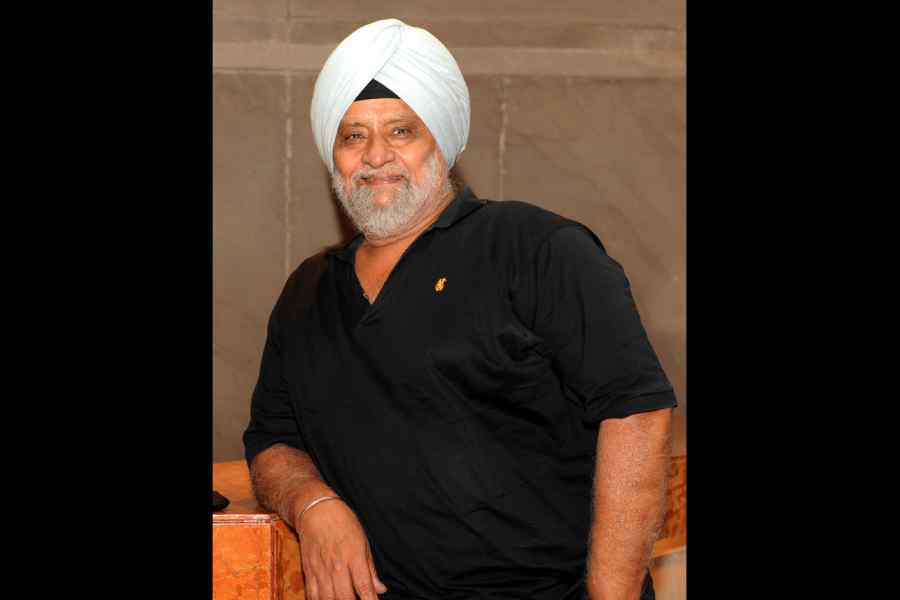Prophetic vision
Clearing up old piles of newspapers this week, I reached into a cardboard box and, by sheer chance, pulled out a page from The Sunday Times of June 24, 1990. An article on page 5 took me back to a conversation with Bishan Singh Bedi, whom I had known since his days playing county cricket for Northamptonshire. “No, you are not,” he exclaimed, when I rang him at his home in Delhi and said that I was flying home to London that evening. He ordered me to cancel the flight and return to
London via Bombay instead, which I did. “Here’s a number, take my name and go and see this boy.”
That was my first interview with Sachin Tendulkar, for which I have Bedi to thank. Sachin was then 17 and due to come to England in July for a three-Test tour (he got his first Test century at Old Trafford). On the way to the airport, I kept the taxi waiting in Bandra East while I chatted with Sachin who was playing in a limited overs match. On returning to London, I found that the sports editor of The Sunday Times wouldn’t take the interview (“we don’t write about little schoolboys”). But the result was a feature in News Review — “The boy who would be king bat” — with my photograph of a fresh-faced Sachin. I got in what turned out to be a prophetic quote from Bedi: “The boy should be getting hundreds and winning matches for India.”
It so happens that Bedi also came up in the conversation last month when I went to see Mike Brearley at his home in London to talk about the former English captain’s new book, Turning over the Pebbles: A Life in Cricket and in the Mind. He described Bedi as “the most beautiful slow bowler I think I’ve ever seen.”
True pioneer
Waris Hussein has invited his friends to a cocktail party in London on November 19 to mark the 60th anniversary of the inaugural transmission of Doctor Who. Back in 1963, when the BBC devised Doctor Who as a new science fiction series, no established director would touch the project because everyone assumed it was doomed. Waris, who was asked, as a 24-year-old BBC recruit, to take on Doctor Who, directed the first few episodes and “basically rescued Doctor Who”. “It’s now the corporation’s most profitable franchise,” laughs Waris. He was born in Lucknow in 1938, came to Britain with his family in 1946, attended Clifton College, a public school in Bristol, and read English at Queens’ College, Cambridge, where he developed a passion for drama.
Waris’s late mother, Attia Hosain, is remembered for her novel, Sunlight on a Broken Column. His sister, Shama Habibullah, worked with Richard Attenborough on Gandhi as a production manager.
Poetic tale
Reena and Abhijit Lath of Akar Prakar have managed to get the artist, Manish Pushkale, to an exhibition which opened earlier this week at the Guimet National Museum of Asian Arts in Paris. The critically acclaimed exhibition has been called “a monumental, poetic and sensitive installation...”. Pushkale has tried to find an art form to reflect a strange tale from the Andaman Islands, which is surely worthy of a movie like The Horse Whisperer.
Pushkale recalls: “I heard one story from the great linguist, Ganesh Devy, about a communication system in the Bo tribes of Andaman. The story is about the lady, the senior Boa. She was able to converse with the sparrows and she did that for long years. With her death, this unique communication system between humans and the birds went extinct. When I started working on this story with innumerable drawings in 2020 I failed many a time. I was struggling to find visuals to communicate this loss. Slowly the image started to appear to draw itself, shape itself in dimensions I never imagined. The fragments and details we see in the work, the aggression, the darkness, a kind of dryness of the land, the distant moon, are all fonts that contribute towards the ultimate image of that huge loss. Living in evolved times do we register or realise the loss of this collective memory that we represent?”
Straight from the heart
Shirin Wheeler’s book on her father, who was the BBC correspondent in India from 1958-1962, doesn’t come out till next month but she has been kind enough to send me a proof copy of Charles Wheeler: Witness to the Twentieth Century. What comes across is a portrait of a tumultuous period in Nehru’s secular India. Wheeler caused a diplomatic crisis by stating “Ceylon has been ruled by a Cabinet composed very largely of mediocrities.” He got so fed up with Queen Elizabeth’s long tour of India in 1961, he remarked, “I wish that bloody woman would go away.” It took years before harmonious relations with Buckingham Palace were restored. Journalists, in particular, will love Shirin’s book.










